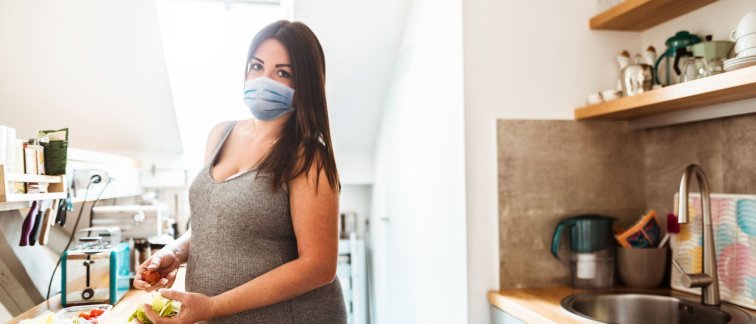Lead researcher Prof. Corine Verhoeven: “It was a unique period, which we had never experienced before. We wanted to investigate whether corona has led to differences in care outcomes. Think of the course of pregnancy and childbirth, but also of the health of mother and child.” The research is published today in Birth.
Protection against contamination
Healthcare systems worldwide were under pressure during the corona pandemic. Various measures had to protect patients and healthcare workers against contamination. For maternity care in the Netherlands, the professional organizations Royal Dutch Organization of Midwives (KNOV) and the Dutch Society of Obstetrics and Gynaecology (NVOG) have drawn up strict guidelines. For example, the number of contact moments was kept to a minimum and a maximum of one (extra) person was allowed to be present during the birth. The pregnant woman was requested to come to appointments with the obstetrician alone. Many consultations took place by telephone or online.
Home births
The study included 5913 women with a low-risk pregnancy who were under the care of the primary obstetrician. 2,963 (50.1%) of them were pregnant during the pandemic (2020) and 2,950 (49.9%) the year before. During the pandemic, more women who started labor with the midwife gave birth at home: 23.8% compared to 20.1% in the year before the pandemic (2019). More women also indicated to their midwife in advance that they would like to give birth at home.
During the pandemic, more women gave birth with pain medication, a trend that has been going on for some time. The percentage of episiotomies, i.e. making a 'cut', actually decreased slightly. This trend has also been visible nationally in recent years. The health outcomes for mother and child, such as preterm birth, blood loss and birth weight, remained the same. Verhoeven: “That says something about the quality of care during the COVID-19 pandemic, but it also confirms what we already knew from previous studies. Namely that home births in the Netherlands take place in a safe and healthy way.”
Resilient birth care system
Birth care in the Netherlands is unique with the relatively high number of home births. “We have a well-functioning system, with excellent collaboration between primary care midwives and hospitals,” says Verhoeven. “It allowed women to choose where to give birth during a crisis like this pandemic. In retrospect, it appears that this has relieved the already overloaded hospitals. The system has shown to be resilient and secure.”

